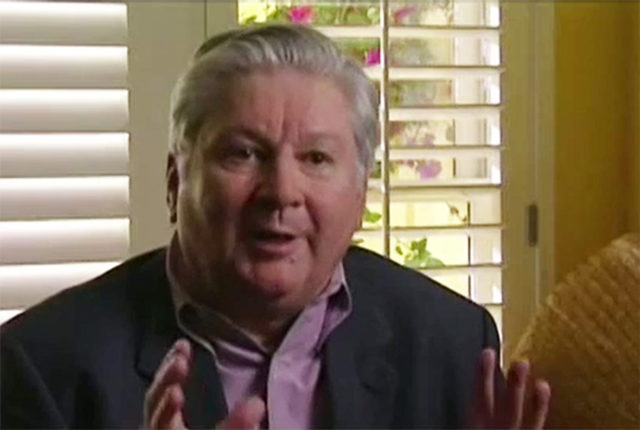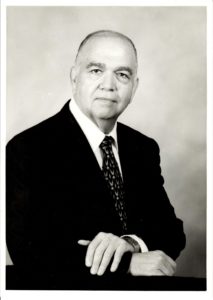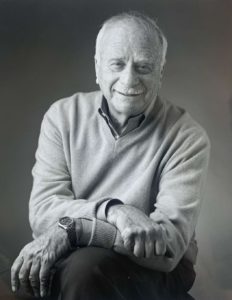Richard Lehan, who served as chair of the Department of English in the 1970s, died Feb. 27. He was 93.
Lehan began working at UCLA in 1962 after teaching at the University of Texas at Austin. Prior to his teaching career, he received his doctorate from the University of Wisconsin in 1959, where he wrote his dissertation on French literary existentialism. During Lehan’s time at UCLA, he received a Guggenheim Fellowship – a grant awarded to individuals involved with the arts who demonstrate exceptional scholarship and future potential – and served on several committees of the Modern Language Association of America, an organization for the study of language and literature.
Prior to earning his doctorate, Lehan attended Stonehill College as part of the school’s first undergraduate class in 1952, according to an emailed statement from Stonehill college president Reverend John Denning.
During his lifetime, Lehan wrote several celebrated books, including “The City in Literature: An Intellectual and Cultural History” and “Realism and Naturalism: The Novel in an Age of Transition,” said Ali Behdad, a professor of English at UCLA, in an emailed statement.
Henry Ansgar Kelly, a distinguished research professor of English, said Lehan’s work focused on the American novel, particularly “The Great Gatsby.” The two professors frequently met outside of Kaplan Hall after both of their retirements to discuss their writing, even informally competing to see who had written the most books, Kelly added.
Lehan came from a family of readers and devoted most of his life to literature, his sister Brenda MacDonald said, adding that he loved his work as a professor. She said she was grateful that, while she was in high school, Lehan introduced her to authors such as Theodore Dreiser and F. Scott Fitzgerald.
Lehan was dedicated to his role as chair of the English department, despite it being a taxing job because of the amount of hiring in the 1970s, Kelly said.
“He was a pillar of the department,” Kelly said. “As a chair and a senior professor, I found him always very solid in his judgments and a great colleague – very critical in the best sense of the word.”
Lehan had a constant desire to learn, said Christopher Mott, a senior continuing lecturer in the English department whose dissertation was directed by Lehan. Beyond his own work, Lehan also strove to learn more by bringing other scholars in his field into the English department and making connections with students, Mott added.
Although the environment was competitive while Mott was a graduate student at UCLA, Lehan always encouraged students and promoted collaboration, Mott said. He added that Lehan facilitated Mott’s work by allowing him to develop his own academic ideas and interests.
“You just got the feeling that everybody’s welcome. We can learn from everybody,” Mott said. “I thought that was very, very successful for producing student success.”
Lehan was also a welcoming presence in the department for younger colleagues, even inviting some of them to eat at a restaurant previously frequented by famous authors, said Karen Rowe, a professor emerita of English.
“It was his way of putting himself in a place where these authors that he wrote about actually breathed the air, ate the food, gathered with each other,” Rowe said. “I’ve always been grateful to him for that generosity of spirit and being willing to include his younger colleagues.”
Lehan was also committed to making literary works accessible to students, Rowe said. One of his publications on “The Great Gatsby” encouraged readers to develop their own analysis and understanding of the context around the novel, she added.
Lehan was a kind person and students would often line up outside his office to speak to him, said Lynn Batten, a professor emeritus of English, whose office was next door to Lehan’s for around 15 years. When students were disturbed in the aftermath of the Oklahoma City bombing, Lehan took time to comfort them in his office, Batten added.
Lehan was also gentle, caring and reliable, Mott said.
“I think for him there was a real strong, moral imperative to try to be there for people. He felt a responsibility that once you knew him, you could depend on him,” Mott said. “I’m trying to be a little bit like him. I’m carrying him with me, but there’s obviously a part of him that we can’t because he’s not here, and that will be missed.”
Lehan remained involved with Stonehill College even after his graduation, Denning said in the statement.
“He embodied the mission of the College by leading with compassion as a distinguished scholar, teacher, and literary figure,” Denning said in the statement. “He served Stonehill faithfully for many years including as a member of the Board of Trustees.”
While MacDonald said she remembers Lehan was a serious student who was very humble, he also had dry wit, a gentle soul and fun nature.
“He was very, very caring. If he hadn’t heard from me, if I didn’t answer the phone, he would call me again and again until he made sure I was fine,” MacDonald said. “I just remember him always with great love.”






Comments are closed.